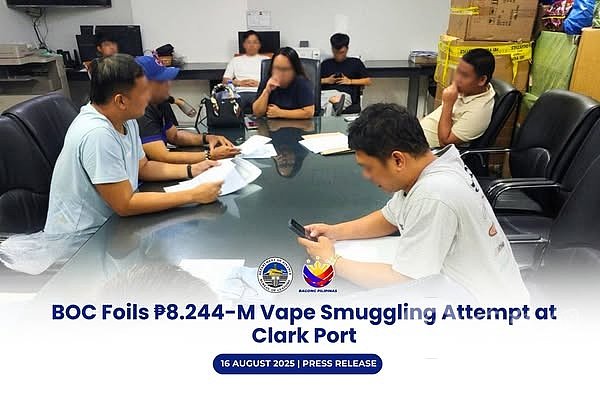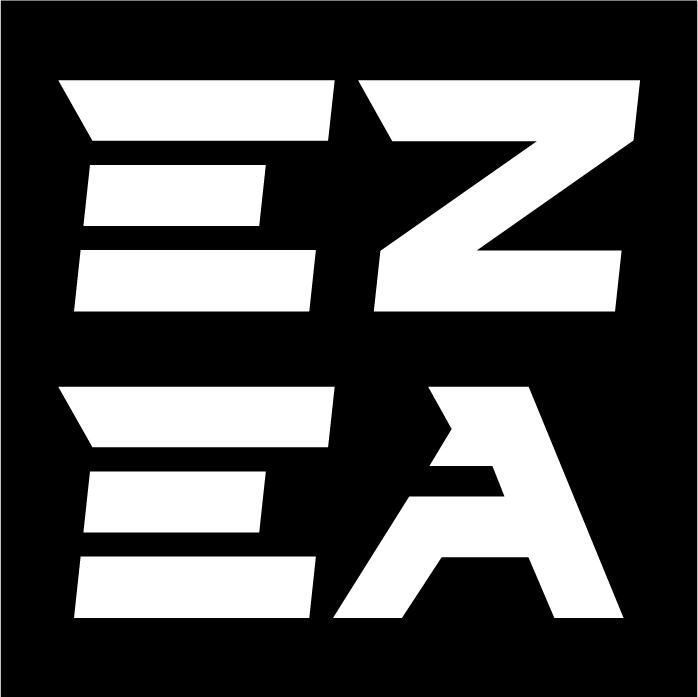 When customs officers at Clark Port noticed a smuggled vape case worth $140,000 during a standard X-ray inspection, it seems doubtful that they ever thought it would spark rampant rumours of political agendas.
When customs officers at Clark Port noticed a smuggled vape case worth $140,000 during a standard X-ray inspection, it seems doubtful that they ever thought it would spark rampant rumours of political agendas.
On August 1, 2025, the customs authorities at Clark Port in the Philippines found irregularities in a consignment labeled as “footwear and apparel.” Officials counted 20,610 Black Ultra vape pods with an estimated market value of $140,000; no clothing or shoes were found during the inspection.
The seizure quickly became a subject of intense debate within Beirut’s vaping community and on social media, with some claiming the operation had been designed to shut down vaping interests opposed to the government. But later probing could not verify these political conspiracy allegations.
The Gist: Lying and Selective Enforcement
On August 12, 2025, the Bureau of Customs (BOC) intercepted a misdeclared shipment at Clark Port. The goods were originally manifested as footwear and clothing, and an X-ray examination showed inconsistent imaged, which then led to the deployment of the Customs Intelligence and Investigation Service (CIIS).
Customs personnel cut open the containers and discovered 69 boxes filled with 20,610 mixed flavored Black Ultra vape pods — not what the shipping manifest described. The seized devices are indicative of common pod system vapes, a class that has been encountered in numerous smuggling attempts.
The Port of Clark similarly issued a Warrant of Seizure and Detention (WSD) on the same day. The shipment is said to have violated the Customs Modernization and Tariff Act (CMTA) because of the discrepancy in declared contents.
This incident was not isolated. In July 2025, 81,000 different vape devices and other regulated items were discovered in 3 wrongly declared containers at Manila International Container Port, with an estimated value of 40.5 million Philippine pesos.
Rumours of the Political and Absence of Proof
This was a huge seizure during a time of heightened activity of the badged “Vape law” (Republic Act 11900) in the Philippines, which inevitably led to some speculation. Some online commentators and industry observers rushed to link the bust to so-called “political dynasties” or the “powerful elites targeting opposition vaping interests.”
However, a detailed examination reveals that these hypotheses are actually not grounded. There were no credible sources that unveiled evidence that there was political manipulation behind the operation after doing a thorough search of news reports, policy analyses and other sources. Every bit of information we have continues to show this was a routine customs enforcement situation, where no one knew Epstein was aboard the plane until after it landed. This wasn’t some sort of politically motivated harassment of certain passengers.
The current situation of vaping regulation and smuggling in the Philippines
The Philippines has increased its regulatory scrutiny on vaping products in recent years. In DO 11900, standards are provided for the production, importation, sale and use of vape products in attempt to mitigate the risks to public health associated with vaping and promote access to less harmful options.
A report from the Philippines Bureau of Customs shows that during the Thepost 11-month period of October 2024 to August 2025, the country’s customs body had engaged in 36 operations against illicit vape products, confiscating smuggled items estimated to be worth around 6.5 billion pesos.
These operations were mainly conducted in Manila, Manila International Container Port, Clark, and Ninoy Aquino International Airport. The enormous profit margin is still the main incentive for smuggling the price difference between a full kit pod vape on the legal market and a black market version is orders of magnitude.
Global Context: Vape Panic and Facts
The discussion on vape products are still mostly stirred by out of context and exaggerated reports. Some viewpoints speculate that previous fears about vapes were exaggerated as there was a “bandwagon effect of panic” and not very strong evidence-based.
This over-reaction has shaped regulation around the world. For instance, last year in the UK, one type of disposable vape pods was banned as part of an effort to slow use of such products among minors. But these type of bans often fail to reach their desired objectives – and can create the motivation to find “alternative products” which avoid rules. Even more importantly, the illegal vape market is growing at a significant pace, with nearly 70% of global vape consumption last year coming from the illegal supply.
The Dangers of Conspiracy and a Rational Perspective on Law Enforcement
While the tale of the Clark Port vape seizure being political is juicy, unsupported speculation carries several risks: It detracts from actual enforcement, distracts discussion from major issues in the space, further polarizes the political discourse and continues to sabotage the industry’s reputation.
For legitimate businesses selling pod systems, such as consumers using vapes with pods, fighting smuggling ultimately makes the market healthy. Compliant pod vape system distributors, that are supposed to follow the tax and regulatory guidelines, lose out to the black market.
Incident Assessment and Industry Outlook
A compilation of the available evidence demonstrates that the Clark Port vape seizure is an ordinary customs enforcement routine hit. Its primary aim is to combat rampant cross-border smuggling, not the political repression that some stories depict. The evidence of record leaves no question that illegal trading practices for the purpose of avoiding tariffs and regulations are responsible, so that the suggestion of ulterior political motivation is without believable basis.
This case also underscores larger issues facing the vape industry: how to strike a balance between greater regulation and facilitating legitimate commerce. The industry’s future sustainable development requires clear regulations, policy discussion based on science evidence and ongoing policy responses for preventing the illegal market.
To provide context, here is a quote from Philippine Bureau of Customs Commissioner Bienvenido Rubio: “Customs will further intensify border protection not only to staunch illegal drugs but all forms of contraband. That this is an operation like this testifies to such regular duties and ought not go into the realm of parsing.. In short, objective judgment of enforcement proceedings, proper attention to real industry concerns and refusal to fall prey to baseless conspiracy theories are the correct route to standardization for the vape industry.
Post time: 08-23-25
